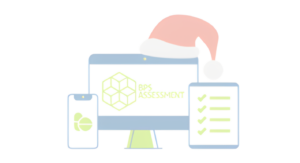With the first PSA exam out of the way, some might see this as a time to sit back and relax, but there are still three more opportunities to sit the exam. Whether you’re preparing for your first attempt or gearing up for a re-sit, now is the time to refine your skills and build confidence in your prescribing abilities. Staying proactive in your preparation will ensure you’re ready when your exam date arrives.
In this blog, we provide essential tips tailored to both first-time sitters and re-sitters, helping you maximise your preparation time effectively.
For First-Time Sitters: Build a Strong Foundation
As a first-time PSA candidate, preparation is key to ensuring success on exam day. Here’s how to set yourself up for success:
1. Familiarise Yourself with the Exam Format
- The PSA consists of eight question types, ranging from prescription writing to data interpretation. Take time to understand how each section is structured and what skills are being tested. Check out our blog ‘How is the PSA exam scored’ for a more detailed breakdown.
- Explore free resources such as the PSA Prep eLearning modules, which break down each question type and provide essential tips.
- Check out sample questions available on the official PSA website to get a feel for the exam style.
2. Master the BNF – Medicines Complete and NICE
- Knowing how to navigate the Medicines Complete British National Formulary (MC BNF), BNF for Children (MC BNFc) and NICE BNF and BNFc (in the UK) efficiently is crucial.
- You will have access to these BNF resources up to 2 weeks before the exam when using the official practice materials as well as during the exam itself. Practising how to use them effectively beforehand will save you time under pressure.
- Use case-based learning to apply BNF knowledge to real-world scenarios.
3. Strengthen Your Knowledge with Targeted Practice
- Some topics are more complex than others, such as antimicrobial prescribing, dose calculations, and contraindications.
- Work through case studies and mock scenarios to reinforce your understanding.
- Use practice papers and self-marking exercises to test your prescribing knowledge.
4. Lean on Your Support System
- Discuss prescribing challenges with your peers and professors—collaborative learning can highlight areas you might have overlooked.
- Join study groups or online forums where students share tips and discuss tricky prescribing cases.
For Re-Sitters: Learn from Experience and Focus on Improvement
If you didn’t pass the PSA on your first attempt, don’t be discouraged. Many candidates improve their scores significantly on a second sitting by refining their approach.
1. Reflect on Your Previous Attempt
- Identify the areas where you struggled—was it time management, understanding the question types, or interpreting guidelines?
- Focus your revision on these weaker areas to turn them into strengths.
2. Use PSA Prep to Fill in Knowledge Gaps
- If you didn’t use them the first time around, the PSA Prep eLearning sessions available on the BPS Assessment Portal are an excellent way to reinforce your understanding of the PSA questions and re-familiarise yourself with the layout and structure of the exam.
- They provide step-by-step guidance on answering different question types, helping you approach the exam more strategically.
3. Practice Under Exam Conditions
- Timed practice papers will help improve both speed and accuracy.
- Simulate exam conditions by working through questions without referring to external notes, using only the BNF.
4. Develop a Better Exam Strategy
- Many students struggle with time pressure, so practice prioritising easier questions first to build momentum.
- Use structured approaches, such as double-checking doses and contraindications before finalising your answers.
5. Seek Support and Stay Positive
- Don’t hesitate to reach out to your tutors or educational supervisors for guidance on improving your performance.
- Remember, re-sitting the PSA does not define your abilities as a doctor—it’s simply an opportunity to refine your prescribing skills.
Whether you’re sitting the PSA for the first time or preparing for a re-sit, the right preparation strategies can help you succeed. Make use of free resources like PSA Prep, practice navigating the BNF efficiently, and take advantage of study groups and support networks. With focused effort and the right approach, you’ll be well on your way to passing the PSA and strengthening your prescribing confidence.




